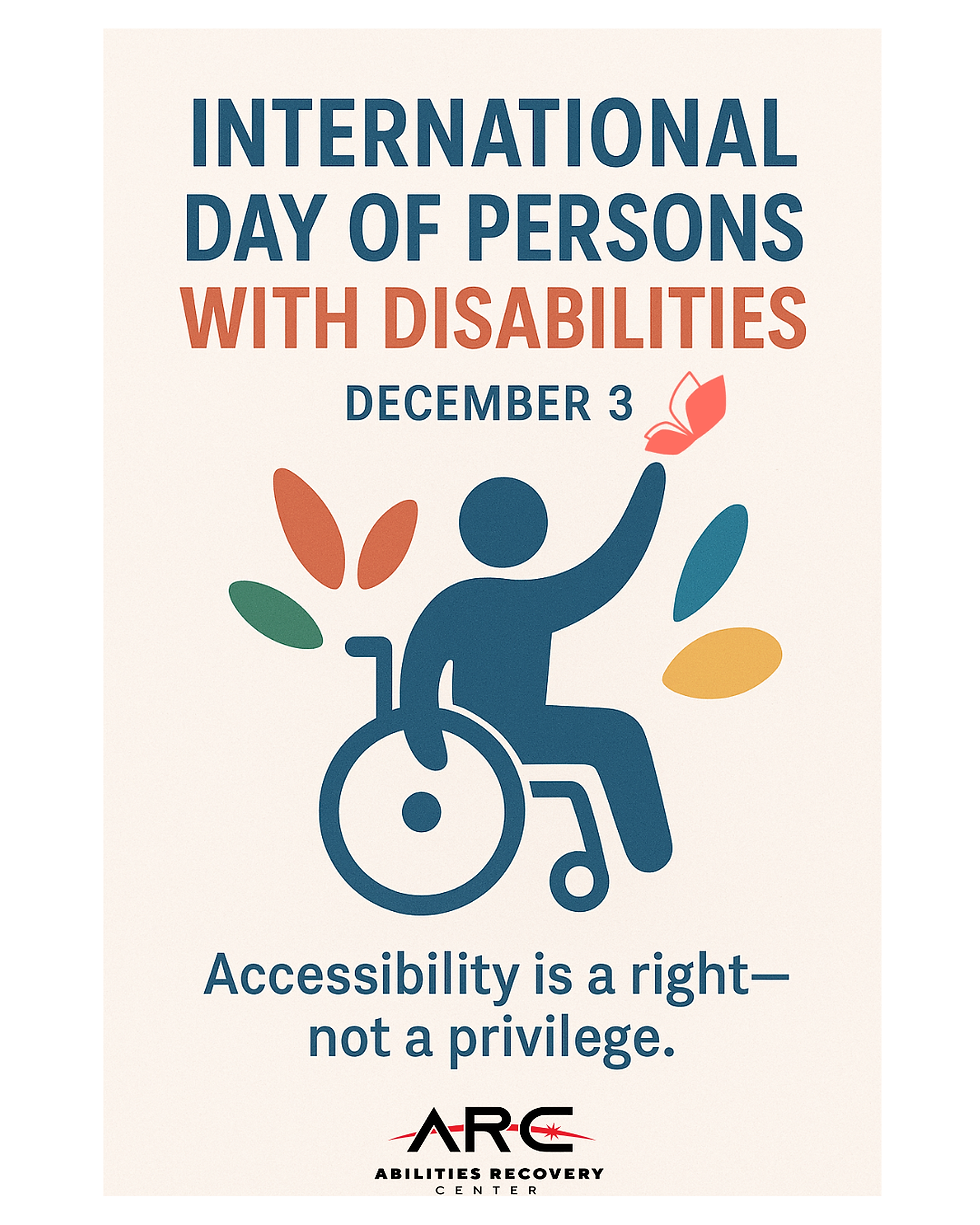Restoring Mind and Movement: Alzheimer’s & Brain Awareness Month
- Abilities Recovery Center

- Jun 9, 2025
- 2 min read

June is Alzheimer’s and Brain Awareness Month!! This is a time to spotlight the importance of brain health, honor those affected by Alzheimer’s and other neurodegenerative conditions, and promote support through education and rehabilitation.
At Abilities Recovery Center, we know that brain health is deeply connected to quality of life. For individuals living with Alzheimer’s, traumatic brain injury (TBI), stroke, or neurological illness, movement, cognitive engagement, and human connection are some of the most powerful tools in the healing journey.
What Is Alzheimer’s and Brain Awareness Month?
This Alzheimer's Awareness Month, spearheaded by the Alzheimer’s Association, is dedicated to increasing understanding of Alzheimer’s disease and other dementias. More than 6.9 million Americans aged 65 and older are currently living with Alzheimer’s in 2024, a number projected to more than double by 2050 (Alzheimer’s Association, 2024).
While Alzheimer’s is the most well-known, this month also honors those living with:
Vascular dementia
Lewy body dementia
Frontotemporal dementia
Brain injuries or trauma
Neurological illnesses such as MS and Parkinson’s
What services does Abilities Recovery Center offer?
Many people assume cognitive decline and motor function loss are entirely separate, but they are deeply connected. At ARC, we witness firsthand how movement, repetition, and functional training positively impact brain health and overall quality of life.
Our programs support individuals with:
Post-stroke recovery and reconditioning
Traumatic brain injuries (TBI)
Neurodegenerative conditions affecting balance, strength, and cognition
Mobility and memory decline in early Alzheimer’s
Through adaptive fitness, neuromuscular stimulation, and cognitive-motor training, our clients work toward real and lasting improvements.
Why Movement Matters for Brain Health
Movement and brain health go hand in hand. According to research from the National Institute on Aging, physical activity increases blood flow to the brain, supports memory, and may even slow the progression of neurodegenerative diseases.
Our work with clients includes:
Gait training and balance to prevent falls and restore coordination
Strength training to maintain independence
Task-based exercises that combine thinking and movement for better brain-body integration
A Message of Hope
A diagnosis does not define a person. At Abilities Recovery Center, we focus on what is possible through recovery, resilience, and regaining control. While we may not be able to reverse every neurological condition, we can improve function, support dignity, and celebrate each win along the way.
This month, and every month, we stand with those living with Alzheimer’s, brain injuries, and other neurological challenges. We move with you, support you, and believe in your potential.
Sources:
Alzheimer’s Association. (2024). Alzheimer’s Disease Facts and Figures. https://www.alz.org
National Institute on Aging. Exercise and Physical Activity. https://www.nia.nih.gov




Comments